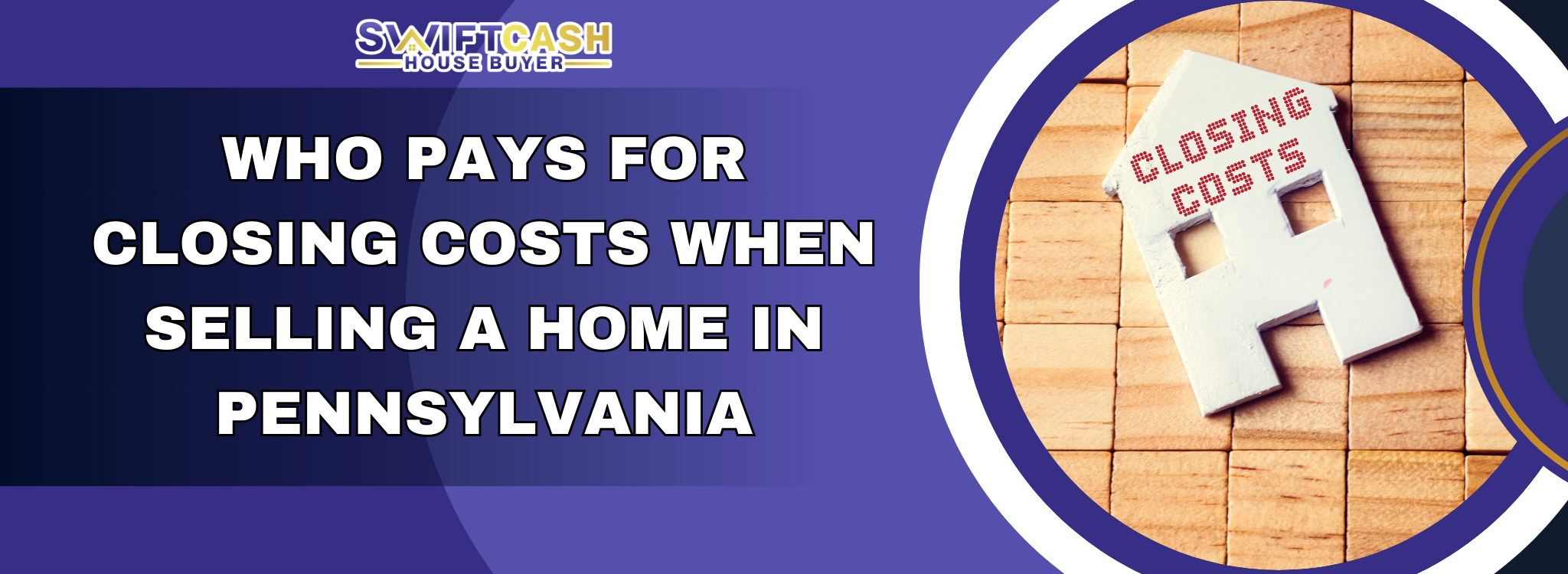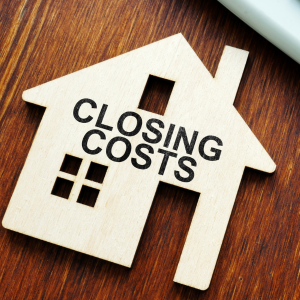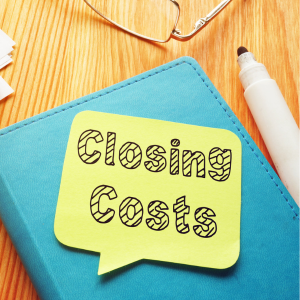
What Factors Influence Closing Costs in Pennsylvania?
Closing fees are essential to every real estate transaction, mainly when selling a home in Pennsylvania. Understanding what influences these fees can help both buyers and sellers prepare.

How Do Location and Property Type Affect Costs?
Where a property is, and its type can significantly impact closing costs. In city areas where more people want to buy homes, closing fees are often higher because property values increase. The property type—like a single-family home, condo, or multi-family building—also matters. Properties that need more legal work or inspections usually have higher fees.
What Role Does the Real Estate Market Play in Determining Costs?
The real estate market conditions heavily influence closing costs. In a seller’s market with more demand than supply, sellers might face lower closing costs as buyers are willing to take on more expenses. However, sellers may have to cover more fees in a buyer’s market to attract buyers. Watching housing market trends can help you guess these changes.
How Can Negotiations Impact the Final Closing Costs?
Negotiations between the buyer and seller can significantly affect closing costs. Good negotiation can lead to deals where one party agrees to pay specific fees, lowering the seller’s costs. Understanding which expenses can be negotiated and having a clear plan is key to successful talks.
Is It Possible to Predict Closing Costs Accurately?
Predicting closing costs exactly is challenging because many factors influence them. Yet, using suitable estimation methods can give a close guess.

What Tools and Calculators Are Available for Estimating?
Many online tools and closing cost calculators are available to help estimate these fees. These tools consider property value, location, and current real estate market trends to help users guess potential costs. They are helpful for early financial planning and comparisons.
How Reliable Are These Estimations?
These tools offer helpful insights, but their reliability depends on accurate data and the changing market. Estimation accuracy can be affected by sudden market changes or overlooked costs. They should be viewed as a guide, not an exact forecast.
What Common Mistakes Should Be Avoided When Estimating?
When guessing closing costs, common mistakes include overlooking small fees that add up, ignoring market changes, and using outdated information. Staying updated on market conditions and using the latest tools and calculators is essential to avoid these errors. Talking to real estate experts can also improve planning accuracy.
For more help with real estate transactions, explore resources from Swift Cash House Buyer.
Who Is Typically Responsible for Title Insurance Costs in Pennsylvania?
In Pennsylvania, it depends on the deal who pays for title insurance. In Pennsylvania, these fees are usually part of the closing costs for a house, and the buyer and seller can agree on them. Buying a lender’s title insurance coverage is often part of the buyer’s closing costs. This protects the lender from title problems. The seller may have to pay for the closing costs in Pennsylvania and give the buyer an owner’s title insurance policy. Remember that these duties may change based on the terms of a Pennsylvania home deal.

What are the types of title insurance, and what are their importance?
Title insurance comes in two main types: lender’s title insurance and owner’s title insurance.
- Lender’s Title Insurance: This protects the lender’s investment in the property. Mortgage lenders usually require it.
- Owner’s Title Insurance: This protects the buyer from any legal problems with owning the property.
Title insurance is essential because it prevents financial loss from unknown property title issues. Knowing the title insurance costs in Pennsylvania is key, as they are a big part of buyer and seller closing costs. Everyone should check their real estate closing charges in Pennsylvania to ensure all fees are known.
How Are Title Insurance Charges Divided Between Buyer and Seller?
How title insurance charges are split can depend on local habits and the specific deal. In Pennsylvania, typical rules are:
- Buyer Responsibilities: Buyers usually pay for the lender’s title insurance as part of their closing cost obligation.
- Seller Responsibilities: Sellers often cover the owner’s title insurance policy for the buyer, which is seen as customary closing costs in PA.
You can negotiate these terms for different arrangements. However, both parties should know who pays what to avoid misunderstandings during closing.
Can Title Insurance Responsibility Be Negotiated?
Yes, you can usually talk about who pays for title insurance when you buy a house in Pennsylvania. Buyers and sellers should think about how the closing costs, such as title insurance, will affect their finances when they talk about them. Both sides should know the standard Pennsylvania real estate deal fees to keep things fair. If you negotiate well, you might get better terms.

How Do Home Inspections Relate to Closing Costs?
Home inspections are a key part of the PA home closing process. They find issues that might hurt the home’s value or need fixing. Real estate closing expenses in PA often include fees for these checks. These fees can change final closing day costs and are part of the financial obligations when buying a home in Pennsylvania.
Are Inspection Fees Typically Covered in Closing Costs?
Inspection fees are usually not part of standard closing costs. Some seller closing costs guides in PA might suggest covering inspection fees in negotiations, but typically, the buyer pays them upfront and includes them in their overall required closing fees. Buyers and sellers should ensure who pays for what to avoid surprise costs.
What Happens If Significant Issues Are Found During Inspection?
If an inspection finds significant problems, a few things can happen:
- Renegotiation of Terms: The buyer might ask for a price drop or want the seller to cover repair costs, leading to more real estate closing expenses in PA.
- Cancellation of Contract: Depending on the severity and contract details, a buyer might decide to back out, affecting settlement costs in PA real estate.
Strong negotiation can help both sides reach a fair solution.
Can a Buyer Refuse to Pay for Inspection-Derived Repairs?
A buyer can say no to paying for repairs found during an inspection, which can lead to negotiation. If this happens, the seller might adjust the closing cost estimate for a PA house sale, handle the repairs, or offer a credit to the buyer at closing. A straightforward talk about PA seller-buyer closing duties is essential for a smooth transaction during these talks.
Does the Loan Type Affect Closing Costs?
Knowing how various loan types impact closing costs helps one make better home-purchasing decisions. Whether you choose a conventional loan, FHA loan, VA loan, or USDA loan will affect these expenses.
How Do Conventional Loans Compare with FHA Loans Regarding Costs?
Conventional loans and FHA loans are different in terms of costs.

- Conventional Loans:
- Often, they need a higher down payment.
- It may have lower interest rates for buyers with excellent credit.
- Usually, you don’t need mortgage insurance if the down payment is 20% or more.
- FHA Loans:
- Allow lower down payments, sometimes only 3.5%.
- Require mortgage insurance premiums no matter the down payment amount.
- Generally, they have more straightforward credit score requirements compared to conventional loans.
Homebuyers should consider these differences when deciding between conventional and FHA loans to see which fits their budget.
Are There Special Considerations for VA Loan Closings?
VA loan closings offer unique benefits for military homebuyers, including veterans and active-duty service members.
- Key Benefits:
- Often, no down payment is needed.
- Competitive interest rates are available.
- Limits on what VA lenders can charge for closing costs.
There is also a VA funding fee, a one-time charge that helps lower the loan’s cost to taxpayers, though some veterans may not have to pay this fee. Understanding these points can help veterans make the most of their loan benefits.
What Should Borrowers Know About USDA Loan Closing Costs?
USDA loans help support rural development and offer unique perks to qualified homebuyers.
- Key Features:
- No down payment is needed for properties that qualify.
- Competitive interest rates and flexible loan terms.
- Closing costs can sometimes be included in the loan amount if the appraised value is high enough.
These government loans are outstanding for buyers looking for affordable financing in rural areas.
For expert advice and detailed information on closing costs when selling a house in Pennsylvania, contact Swift Cash House Buyer. Their team can help you understand your expenses, navigate the process, and explore ways to save on costs.
Are Real Estate Professional Commissions Part of Closing Costs?
Real estate professional commissions are usually part of the total closing costs in a property sale.
How Are Commissions Typically Structured?

Commissions are generally a percentage of the home’s sales price.
- Common Structure:
- Total commission is typically around 5% to 6% of the sale price.
- Terms can be negotiable based on the agreement between parties.
Negotiating the commission structure, like offering incentives or changing percentages, can affect total costs for both buyers and sellers.
Can Buyers or Sellers Negotiate Real Estate Commissions?
Yes, commissions can often be negotiated. Things that affect negotiation include:
- Current market conditions.
- The flexibility of the real estate agency involved.
- Specific arrangements between buyers, sellers, and real estate professionals.
Knowing there’s room to negotiate commission agreements can yield significant savings during property sales.
What Alternatives Exist to Traditional Commission Models?
There are several other options to traditional commission models.
- Alternatives Include:
- Flat fee arrangements where a fixed amount is paid instead of a percentage.
- Discount brokers who offer reduced fees for essential services.
- Online platforms that use technology for efficient transactions at lower costs.
These models can help save money while still providing valuable real estate services.
What Taxes Are Involved in the Closing Process?
When selling a house in Pennsylvania, knowing the different taxes involved in closing is essential. Closing costs cover various charges, like the transfer tax, which the buyer and seller usually share. Understanding these expenses helps you plan your budget for the real estate transaction.

How is Transfer Tax Calculated and Applied?
In Pennsylvania, the transfer tax is typically 2% of the property’s sale price. This tax is often split equally between the buyer and the seller, but it can be negotiated. Knowing who pays this transfer tax in a PA real estate transaction can affect your financial plans. Always check with your real estate professional or attorney to confirm specific requirements and responsibilities for this fee.
What Other Local Taxes Might Be Included?
Aside from the transfer tax, there may be other local taxes during the home sale process. These can include municipal or school district taxes. When determining your total closing costs, you should factor in these Pennsylvania home sale fees. Some taxes may be prorated, meaning you only pay for the part of the year you own the property, which can change your overall settlement costs.
Are There Any Tax Exemptions Available for Sellers or Buyers?
Certain tax exemptions might lower your closing costs when selling a house in Pennsylvania. These exemptions depend on whether the property is your primary residence or you qualify for specific state programs. Knowing about available exemptions can reduce your seller’s responsibility and the buyer’s costs during the closing process. Always review Pennsylvania guidelines or talk to a professional to see if you qualify for any savings.
How Does Escrow Work in Closing Costs?
Escrow accounts are crucial in the PA home closing process, as they hold funds safely until all sale conditions are met. These accounts manage and distribute money related to the property’s closing costs, protecting both parties until the transaction is finished.

What Is the Purpose of an Escrow Account?
An escrow account’s primary purpose is to protect both the buyer and seller by ensuring funds are available and correctly distributed at closing. It helps manage closing day costs, including escrow costs for the seller in Pennsylvania. Using an escrow account gives all parties confidence that the transaction will go smoothly.
How Are Funds Distributed from an Escrow at Closing?
Funds in escrow are released once all closing conditions are met. This includes paying off existing mortgages and covering settlement costs like title insurance and unpaid taxes. Precise fund distribution ensures both parties meet their closing fee responsibilities without issues, leading to a smooth end to the real estate transaction.
Can Escrow Accounts Affect Overall Closing Cost Amounts?
Yes, escrow accounts can affect the total closing costs. They ensure prepaid items like property taxes and homeowners insurance are paid on time, which might impact your financial obligations at closing. Knowing how these accounts work can help you understand and manage your financial obligations in a PA home purchase.
What Are Common Challenges Faced With Closing Costs?
Closing costs, often called closing fees, are a necessary part of any real estate deal. These costs can vary greatly and present several challenges for buyers and sellers.

What Problems Might Arise Due to Incomplete Documentation?
Poor documentation can increase closing expenses and unexpected fees in real estate transactions. Missing or lost paperwork can prolong the process and increase costs with last-minute revisions. Avoid these complications by completing and checking documents in advance.
How Can Last-Minute Changes in Payment Affect Closing?
Last-minute payment changes can significantly impact closing day costs. For example, an unexpected change in interest rate or additional costs could interrupt the entire procedure. Such modifications may increase closing expenses, particularly in Pennsylvania, where certain state restrictions apply. All payment details should be verified well before closure day to reduce this risk.
What if Agreed-Upon Conditions Are Not Met Before Closing?
Complications may arise if agreed-upon conditions and contract terms are not met before the closing process begins. This can result in delays or even canceling the sale. Both parties should clearly understand and meet all conditions to prevent these problems.
What Resources Are Available for Buyers and Sellers Looking to Save on Closing Costs?
There are many places where buyers and sellers can find ways to cut down on closing costs. Using these tools can cut costs significantly during the sale of a home.

Are There State Programs Available for Closing Cost Assistance?
Many state programs offer closing cost assistance, especially for first-time homebuyers in Pennsylvania. These programs aim to ease the financial burden of real estate transactions. Researching and applying for eligible programs early in the buying or selling process is advisable.
What Role Can Financial Advisors Play?
Financial advisors give valuable guidance on closing costs and effective cost-saving strategies. By consulting a financial advisor, you can learn to manage your finances better during the home-buying or selling journey. They help you understand which costs are negotiable and how to plan for them.
How Can I Attend Workshops on Home Buying/Selling Benefits?
Attending classes on buying or selling a home can help you understand how much closing costs are. Usually, these classes talk about important things, like negotiating closing costs and how the closing process works. With this information, you can make smart choices and maybe even save money when you sell your Pennsylvania house.
By exploring these resources and actively seeking information, both buyers and sellers can handle the complexities of closing costs better.
For expert assistance navigating closing costs and ensuring a seamless home-selling process, visit Swift Cash House Buyer. Their team provides valuable insights and support to help you make informed decisions and save on expenses.
FAQs:
What are typical closing costs when selling a house in Pennsylvania?
Typically, sellers pay for title insurance, transfer taxes, and real estate professional commissions in Pennsylvania. They might also address prorated property taxes and deed preparation. See a real estate professional for an exhaustive list of these expenses.
Who usually covers closing costs during a home sale in Pennsylvania?
The seller in Pennsylvania usually pays for transfer taxes and home buyer charges. The buyer pays for closing costs. This could change, though, and some costs could be worked out. Talking about this with your real estate professional is a good idea.
Are there any specific taxes I need to pay when selling my property in Pennsylvania?
One standard tax is the transfer tax, which buyers and sellers often split. The rate changes by location, usually around 1-2% of the sale price. Check with your home buyer for the exact amount for your area.
How can I estimate my closing costs when selling a house?
To know how much your closing will cost, add up the real estate sales, transfer taxes, title insurance, and any other applicable fees, such as attorney fees. You can use online tools to get a rough idea, but talking to a professional is best.
What are the buyers’ responsibilities for closing costs in Pennsylvania?
Pennsylvania buyers often cover title searches, appraisal fees, and mortgage-related charges. They may also cover any points or origination expenses connected to their loan and homeowner’s insurance.
Can closing costs be negotiated between buyer and seller?
Indeed, closing costs are often negotiable. Sellers could agree to cover some of the buyer’s expenses in their offer negotiation. Talk about terms with your real estate professional for a direction fit.
What additional fees should I anticipate during the home-selling process in PA?
Apart from the regular closing expenses, you could have to pay municipal taxes, legal fees, or house inspection fees. It’s good to review all potential costs with your real estate professional.
How do closing costs affect the overall proceeds from selling my home?
Closing costs lower the net proceeds you get from selling your home. Knowing all the seller-related fees helps you prepare for the financial impact. Make sure to look at all costs to predict your final profit better.
Key Insights
- Knowing who pays closing costs when selling a house is essential in Pennsylvania. Typically, sellers cover title insurance costs, deed preparation fees, and transfer taxes. However, these costs can change based on the agreement.
- Sellers in Pennsylvania may also pay for prorated property taxes, realty commission fees, and loan payoff fees. Buyers usually handle mortgage taxes, appraisal fees, and lender fees.
- When selling real estate, closing costs include fees for title searches, escrow services, and recording documents. Try negotiating these typical PA closing fees to lower your costs.
- The division of closing costs between buyer and seller can be discussed and agreed upon. Tools like a closing cost calculator can help you accurately estimate Pennsylvania’s real estate transaction fees and home sale expenses.
- Possible deductions from the sales price might include mortgage payoff amounts and any repair costs agreed upon during negotiations. Understanding these deductions helps with budgeting.
- Real estate closing charges in Pennsylvania usually include settlement costs and attorney fees. Sellers should know their responsibilities to avoid surprises at closing.
- Sellers in PA are also responsible for providing a closing day checklist. This ensures the home closing process runs smoothly and meets all financial obligations.
- Use our tips on seller closing costs to improve your negotiation strategy. This includes understanding the closing costs split and knowing who pays Pennsylvania’s transfer taxes or distribution costs.
If you want to sell a house in Pennsylvania, we’re here to help! Whether you’re in Philadelphia, Upper Darby, Haverford, Radnor, Tredyffrin, Ridley, or surrounding areas, we make the process simple and hassle-free. We buy houses in any condition, offering a quick and fair solution for homeowners who need to sell fast. Visit our website Swift Cash House Buyer to learn more about how to sell a home in Pennsylvania and discover the best options available. If you have any questions or need assistance, Contact Us at (610) 590-9845.

